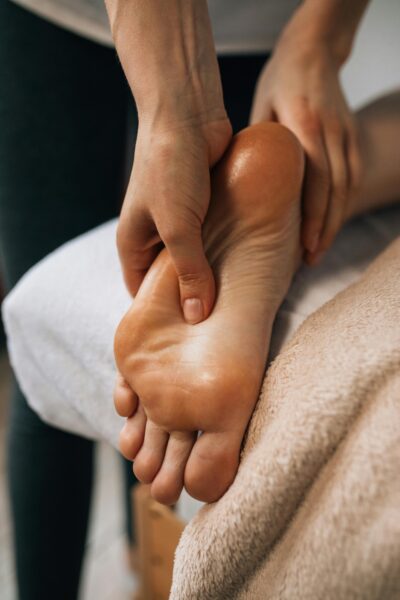Using Acupuncture and Chinese Herbs to Reduce Your Symptoms.

Don’t all women have premenstrual symptoms, (PMS) and cramping? It’s true, many women suffer from painful periods and PMS every month and they think it’s just a part of life, something they have to put up with. Some women, who have endometriosis or fibroids, suffer from so much pain, they have to miss school or work. Often women end up taking pain pills to make it through the day or take birth control not to prevent pregnancy, but to help manage their symptoms. Did you know your periods do not have to be painful and uncomfortable and acupuncture and herbs can help regulate your system so that you can take back your life?!
PMS symptoms can include: abdominal bloating, breast tenderness, irritability, anxiety, fatigue, migraine headaches, sleep disruption, and changes in appetite. These symptoms in Chinese Medicine are not considered normal. They represent an imbalance in the body that does not need to be tolerated or taken as a regular part of life. Your monthly cycle should not be a “grin and bear it” situation. Acupuncture is effective in regulating menstrual cycles. This includes irregular periods, lack or loss of a period, PCOS, pain, acne, hormonal imbalances including symptoms associated with peri-menopause and menopause such as hot flashes, night sweats, and mood swings. Acupuncture works by balancing hormones, regulating blood flow, releasing endorphins and decreasing inflammation which helps to reduce pain.
Today we will focus on dysmenorrhea or painful periods. Dysmenorrhea is often associated with high levels of prostaglandin F(PGE 2). Prostaglandins stimulate an increase in muscle tone and contractions and vaso-pression of uterine blood vessels which results in pain. Often we find that cramps and painful periods are worse with increased stress and poor dietary choices, frequently associated with high dairy, saturated fats, and sugar.
What does a healthy period look like? Bright red blood, no clots, and minimal PMS symptoms. In Chinese Medicine we look at pain as stagnation. A visual for stagnation, or “stuckness”, is a river that is not flowing. If you think of a log jam in a river, a river that is frozen, or a river where water has evaporated and there are only puddles left, you can visualize a lack of flow. If there is stagnation, there will be pain and congestion. Ideally we want to prepare your body so that the shedding of the uterine lining is as smooth as possible and you don’t experience pain.
“If there is pain, there is no free flow
If there is no free flow, there’s pain”
In the peer reviewed scientific journal PLOS One, a study stated “Acupuncture treatment reduced menstrual pain intensity and duration after three months of treatment and this was sustained for up to one year after trial entry.”
A second trial compared acupuncture with ibuprofen and found that acupuncture was more effective for pain relief than ibuprofen (RR 1.20, 95% CI 1.02 to –1.42, ) .
Chinese herbal medicine, combined with acupuncture offers a continual benefit to the patient and will help balance your hormones, regulate your system, decrease pain, and ease uterine contractions and ischemia that cause cramping. Herbs are a great addition to your treatment plan because they boost the benefits of each acupuncture session so you continue to see improvement between sessions.
A study analyzed 57,315 herbal prescriptions and found the three most commonly prescribed formulas included: Dang Gui Shao Yao San, Jia Wei Xiao Yao San, and Wen Jing Tang. This study showed that the formulas helped to lessen pain, help improve mood and balance hormones.
At the Acupuncture Clinic of Boulder, we are able to meet our patients where they are on their health journey to improve their overall quality of life. Knowing that women do not need to suffer from painful cycles or hormone imbalances like hot flashes is the first step to empowerment and feeling better. We would love to help you.
By Autumn Jensen and Cailey Halloran



